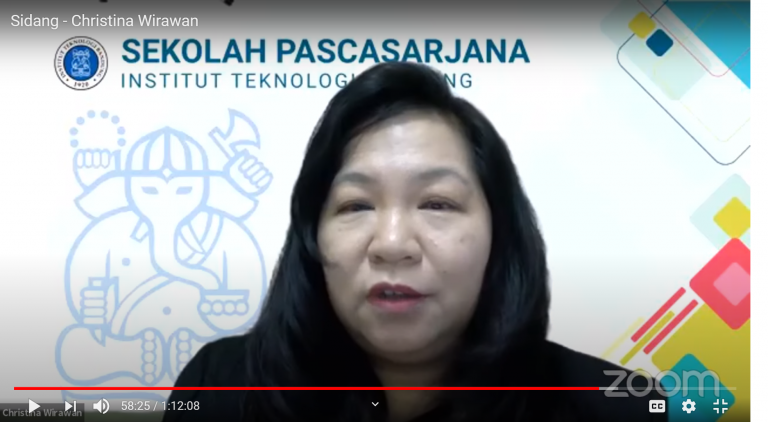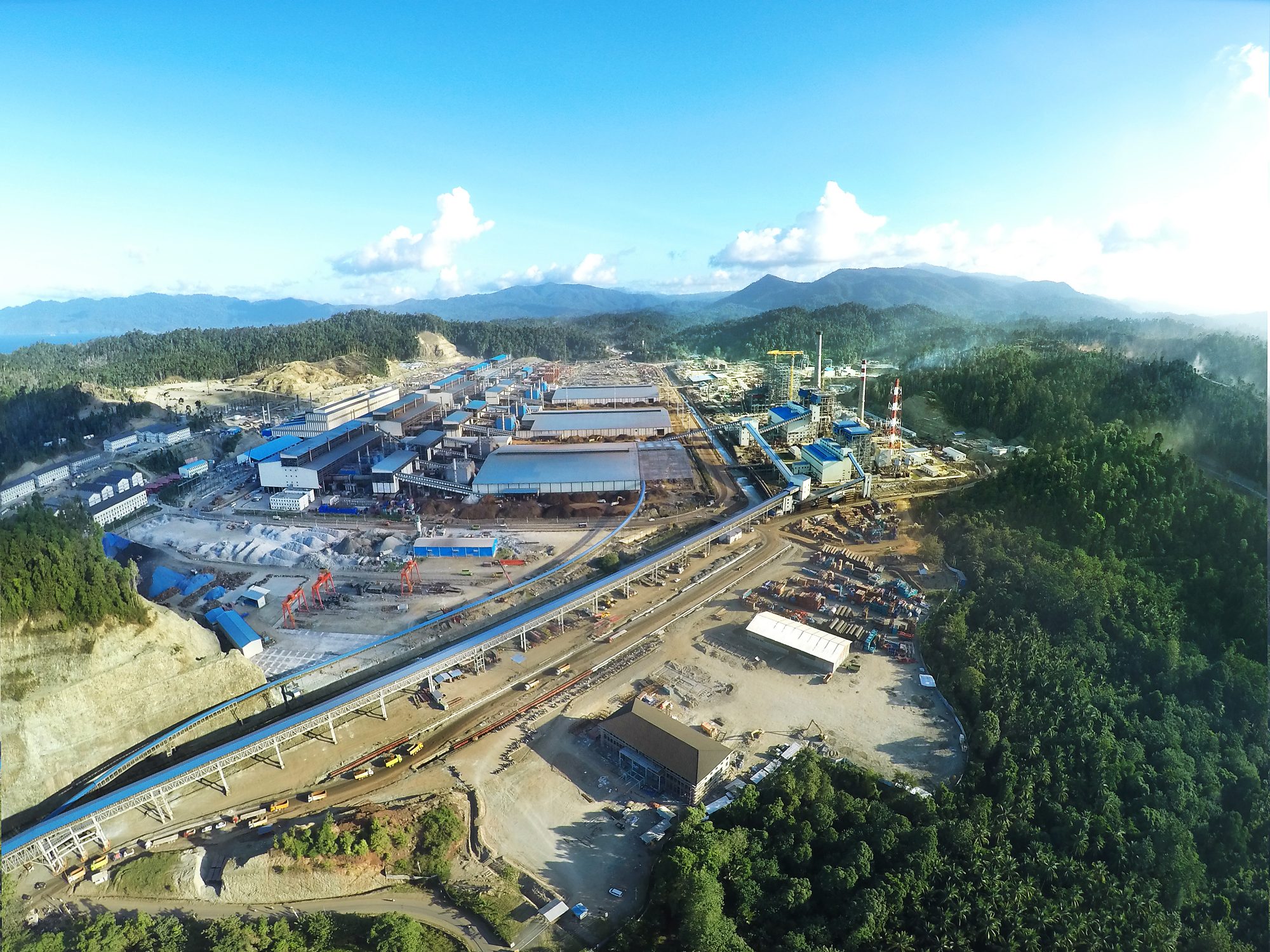Christina Wirawan, one of the DSM program students, is declared to have graduated as a doctor through a virtual doctoral promotion session, Tuesday (22/9/2020). Christina passed after successfully defending her dissertation entitled “Product-Service System Management Towards Company Sustainability (Case Study in Indonesian Industrial Estate Companies). The session was attended by two promoters namely Gatot Yudoko, Ph.D, and Yuliani Dwi Lestari, Ph.D. The examiners for this trial were Dedy Sushandoyo, Ph.D, Harimukti Wandebori, Ph.D, and Naniek Utami Handayani, S.Si., M.T. from UNDIP.
In front of the promoters and examiners, Christina explained the problems experienced by companies in Indonesia. Currently, industrial estate companies generally have the main business of selling or leasing land in the long term.” However, the problem is that the availability of land is limited. When the land is sold or leased out, industrial estate companies generally experience decreasing income,” said Christina.
To get sustainable benefits, industrial estate companies need to find alternative income through service innovation. One way to do this is the application of the product-service system (PSS) concept that combines products and services to create a competitive advantage towards sustainability. The PSS concept seeks to shift the production and consumption of products into services without reducing the benefit to consumers. The framework for implementing PSS management is designed by combining three existing concepts, namely the PSS concept, company life cycle, and resource-based view (RBV).
The concept of a company’s life cycle is used as an analogy to the condition of an industrial estate company that experiences an increase in income while still owning land, then stabilizes when sales are stable and then decreases when the land runs out. This pattern is analogous to the company’s life cycle. The PSS concept is used as a core concept which states that a company needs to manage its PSS according to conditions. In this case, the condition referred to is the company’s life cycle. The RBV concept is used to dissect PSS management by industrial estate companies at each stage of the company’s life cycle.
From her research on 12 industrial estate companies in Indonesia, it shows that industrial estate companies in Indonesia can be grouped into 4 patterns of the company life cycle. The first pattern, the company is sustainable at the growth stage. The second pattern, the company is sustainable at the maturity stage. The third pattern, companies that experience maturity, then decline and rise again. And the last pattern is one that has decreased and rises again.
The occurrence of these four patterns is determined by the timing of industrial estate companies to innovate and carry out PSS management to obtain new sources of income from service innovation. The key to success in the growth stage is location selection and availability of infrastructure, while the key to success in being able to rise again is cooperation and human resource development to gain innovation. “This research can help industrial estate companies in Indonesia to be sustainable and assist the government in formulating policies,” said Christina.





